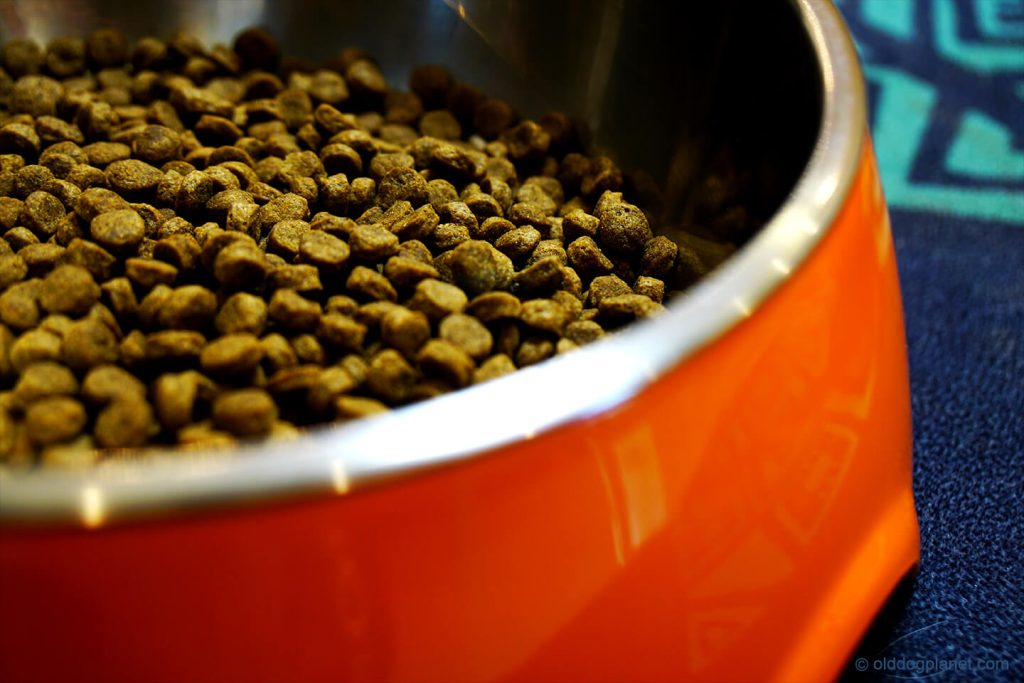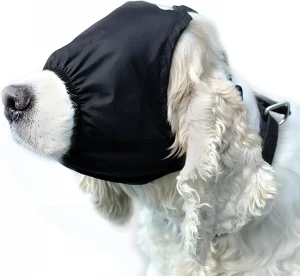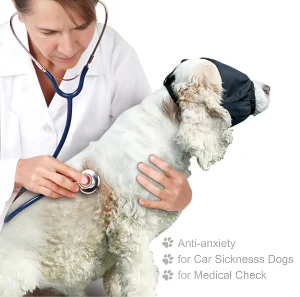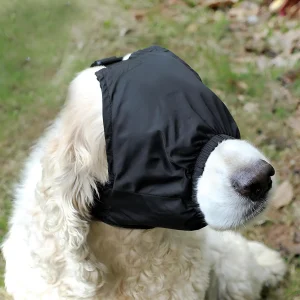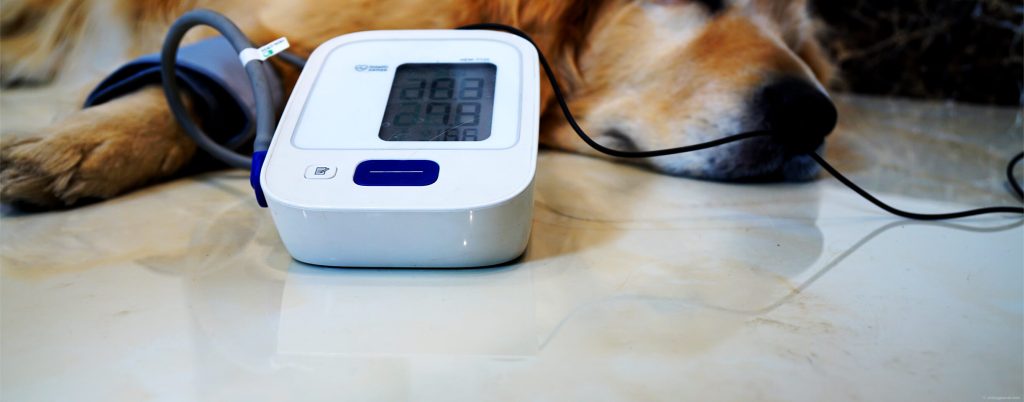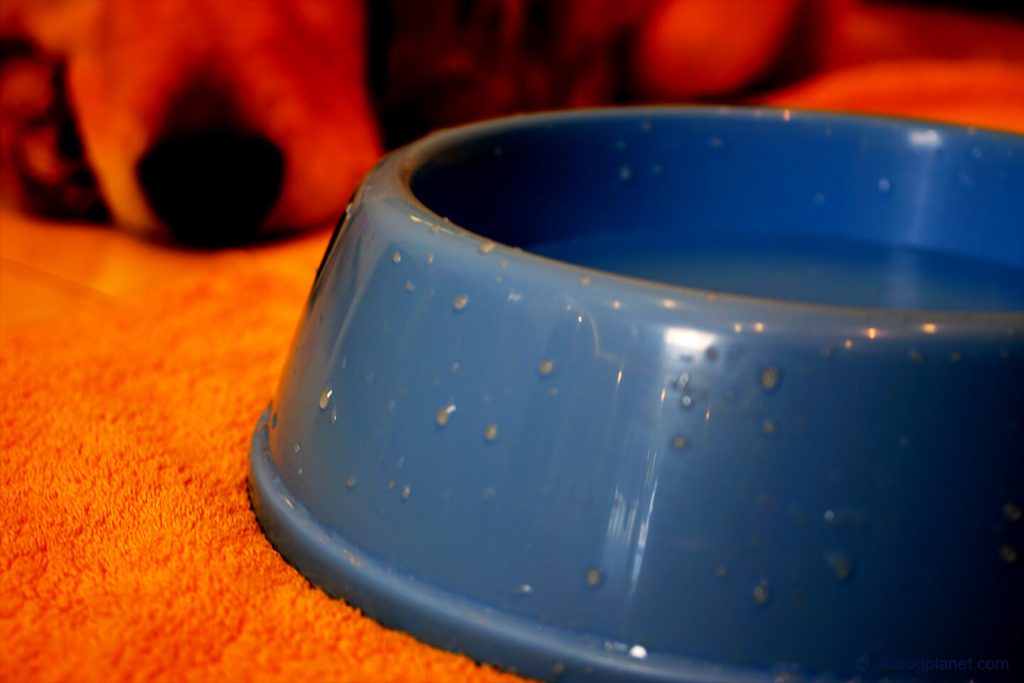Table of Contents
ToggleIt’s very common for old dog crying after eating. I was recently a guest at a friend’s house. Her 10-year-old Labrador named Leo began crying when he finished eating. When my friend approached to appease, Leo would be a little quieter, but he would not stop complaining softly, which made my friend very upset. She stated that in the last week or so, Leo had become more verbal than usual, with whining or even howling once he had finished eating, but she did not appear to have discovered the source of the problem. Appeasement does not assist Leo in resolving any substantive issues.
Next, my friend and I pacified the poor Labrador and tried to make him lie on his side, and then we heard the movement of gas in his stomach. At that moment, we assumed that this was probably the source that made the dog cry, so we gave Leo an abdominal massage for about 15 minutes, and as the massage stretched the abdomen, we heard more sounds of gas swimming. We took Leo for a slow walk after finishing the abdominal massage. By the end of the 30-minute walk, Leo had forgotten what to complain about, and it seemed that he had expelled these vexing gases.
Flatulence is the main cause of crying in older dogs after eating
Dogs’ gastrointestinal function will continue to deteriorate as they age. This is not a sudden change, but rather the result of years of aging. Flatulence usually happens when
- The stomach can no longer tolerate the previous eating methods and types of food
- Or the ingredients of the food has changed significantly
To make matters worse, some older dogs’ pancreas may be dysfunctional, resulting in insufficient secretion of pancreatic enzymes to deal with a large amount of protein, which is also one of the causes of flatulence.
How to tell if a dog is crying because of flatulence
Here are some symptoms that a dog has a flatulence:
- The dog licks itself, carpets, floors and other objects after eating. The licking of everything is a sign of nausea caused by stomach and intestine upset and pain.
- When you gently flick on the dog’s belly, you will hear a drum-like sound, which indicates that a large amount of gas has accumulated in the dog’s intestine.
- When the dog is lying down and changing positions, the sound of gas swimming in the abdomen can be heard.
How to help a dog with flatulence
- Abdominal massage for 15 minutes
- Massage the dog’s abdomen with the action of drawing a circle or stroking in the same direction.
- Massage’s purpose is to apply external force to guide the downward movement of gas in the stomach and intestine, thereby reducing pressure on the stomach and intestine and thus providing a soothing effect.
- Some of the gas that has accumulated in the dog’s intestines and stomach will be released after the massage, relieving the dog’s discomfort.
- It should be noted that the massage should be gentle in order not to aggravate the dog’s pain and discomfort.
- Massage time can be set to about 15 minutes.
- A 30-minute slow walk
- By taking a slow walk, you can direct the gas release even further.
- A slow walk of about 30 minutes can be beneficial in general.
- Remember to bring your dog’s poop bags in case it poops to show its approval of your efforts.
- It is important to note that if your dog is going for a walk with its favorite toy, please let itself pick the toy up rather than holding it in your hand. The dog will most likely believe you want to play the snatching game with it and will jump for the toy if it is in your hand. Jumping is a very dangerous action when there is a lot of gas in dog’s stomach. It is possible to cause GDV (Gastric Dilatation-Volvulus) and other serious conditions in dogs, putting its life in danger.
- Take your senior dog to the vet
- Whenever your elderly dog develops a condition that concerns you, you should take it to the vet as soon as possible, as this is always a necessary step.
- Even if you determine at home that the dog is crying due to flatulence, we will need to conduct additional testing to determine the source of the flatulence.
How to prevent flatulence in senior dogs
- Check the ingredients of the dog food
- Examine the ingredients of your dog’s food to see if they contain soy products, starch, high fat, too much protein, or milk products, all of which can cause abdominal distension.
- Please consider replacing with dog food that does not contain ingredients listed above.
- Because of the decline in gastrointestinal and pancreatic function, the dog food that the dog used to eat may become a burden to the dog as it ages.
- Furthermore, it is suggested that dog food that meets the AAFCO standard and is specific to dog breeds and ages be chosen.
- Replace the dog’s bowl with a slow feeder
- Eating too fast can also increase the risk of flatulence, particularly in older dogs, even if the dog continues to eat at the same rate as before, because the stomach is no longer young and may be flatulence.
- Replace the old dog’s food bowl with a slow feeder, so it can only eat a small amount of food per bite, extending feeding time. This is the most direct and effective method of slowing down your eating.
- Rehydrated kibble
- Try to soak the kibble in water for 30-60 minutes to make the it expand and soften before feeding the dog. (It is also a good way to avoid coughing after drinking water. Please refer to this blog post to learn more about it)
- This reduces the irritation of dry food to the stomach, reduces voids between kibble particles, and allows dogs to drink less water after eating (fast drinking water also brings a lot of air to the stomach).
Final thoughts
In many cases, the senior dog cries after eating due to flatulence. Aside from massaging him and walking slowly to release gas, we can also use a slow feeder and rehydrate kibble to reduce the amount of gas brought into the stomach when eating. Furthermore, it is critical to ensure that the dog food does not contain ingredients that are prone to gas production.
Please keep in mind that senior dogs crying after meals are not always caused by stomach flatulence, which is only a common and major cause of crying after meals. When dogs have intestinal parasites, intestinal tumors, inflammatory bowel disease, food allergies or other diseases, they could also cry and whining after eating. If your old dog cries after a meal for an uncertain reason, please take it to the vet for diagnosis and treatment as soon as possible.

